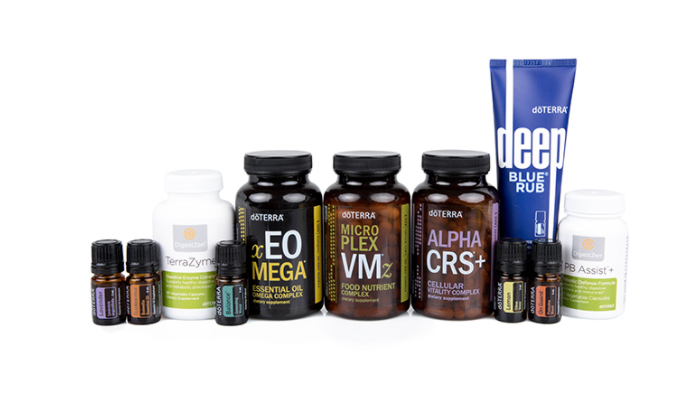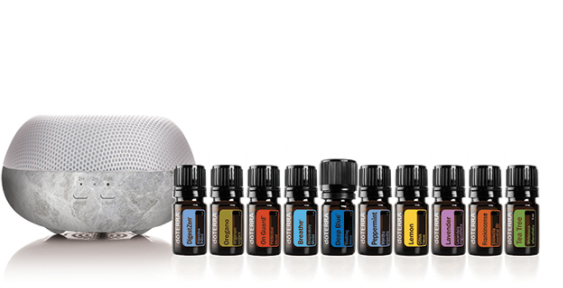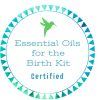Vitamins are organic compounds, usually found in food necessary to sustain the lives of organisms. The requirement is not only limited to humans. All living species require a certain set of vitamins.
Our bodies have the ability to produce some amount of vitamins through many biological processes occurring in the body. However, the human body does not produce the amount that is required for sustainable growth. And the lack of these vitamins may cause deficiencies in your body. Which can lead to hormonal imbalances and weight gain.
Chemically, vitamins are organic components that consist of carbon, hence, not produced by the body in huge amounts. Vitamins are extremely important for normal metabolism and the healthy functioning of the body. A deficiency in any of the different kinds of vitamins can cause serious damage to your health.
Food vector created by iconicbestiary – www.freepik.com
At present, there are 13 recognized vitamins, which are absolutely important for your health. The compounds are further divided into different categories, which we will dive deeper.
Different Kinds of Vitamins
Broadly speaking, there are two kinds of vitamins; fat-soluble vitamins and water-soluble vitamins.
1. Fat-Soluble Vitamins
Fat-soluble vitamins are stored in the fatty tissues of the body and are also present in the liver. These vitamins can be stored by the tissue for days, and sometimes even months, as fuel for when the body needs it.
Examples of these vitamins are Vitamin A, D, E and K. The fat-soluble vitamins are absorbed into the tissue through lipids in the intestinal tracts.
2. Water-soluble Vitamins
Examples of these vitamins are Vitamins B and C. As they are water-soluble, their entire presence depends on the water levels of your body, which means that these get depleted quite easily. Water-soluble vitamins drain away from the body through urine and sweat. That is why they need to be replenished as often as possible.
What Functions Do Vitamins Perform in Your Body?
Now let’s talk about the different functions that certain vitamins perform in your body. If your body is deficient in these vitamins, you need to consult your doctor on an urgent basis.
-
Vitamin A
Vitamin A is a fat-soluble vitamin and can be found in many different foods. You can get vitamin A by consuming Liver, veggies such as broccoli, carrots, kale and even in dairy products like milk, cheese, and eggs. A deficiency of Vitamin A may cause night blindness and an eye disorder, keratomalacia.
-
Vitamin B
Vitamin B, also know as Thiamine is a water-soluble vitamin. Its life cycle in the body is short but is rejuvenated at regular intervals. The foods you need to consume for Vitamin B are proteins such as beef and eggs. It is also widely found in vegetables like broccoli, asparagus, and sweet potato. The deficiency of vitamin B might cause a disease called ariboflavinosis, which results in a mouth full of sores.
-
Vitamin B3
Medically known as Niacin, Vitamin B3 is a water-soluble vitamin, important for sustainable mental development. A deficiency in this vitamin B3 may cause disturbance to the mental structure of the brain along with chances of diarrhea.
It may also cause dermatitis and pellagra which are a fatal disease. Foods that contain Vitamin B3 are meats, chicken, eggs, vegetables, and whole grains. Mushrooms and brewer’s yeast are also important sources of Vitamin B3.
-
Vitamin B5
Vitamin B5 or Pantothenic acid is vital for your touch sensation, the deficiency of which might cause paresthesia. The B5 compound can be found in foods like meat, whole grains, fish ovaries, and broccoli.
-
Vitamin B6
Vitamin B6, also known as pyridoxine, can have an impact on the nervous system and functions related to the brain. Have a vitamin B6 deficiency can cause anemia or even peripheral neuropathy.
You can increase you Pyridoxine intake with the following foods: fresh milk, bananas, vegetables, meat, and whole grains.
-
Vitamin B7
Biotin or Vitamin B7 is a water-soluble vitamin. This vitamin is found in foods like egg yolks, liver, fresh fruits and vegetables. Having a Biotin deficiency can be harmful and may cause dermatitis and inflammation in the intestines.
-
Vitamin B9
Vitamin B9, a water-soluble vitamin. Also known as Folic acid. B9 can carry extra importance during pregnancy because folic acid deficiencies have been linked to birth defects. It’s recommended that pregnant women increase their Vitamin B9 intake at least three months before conceiving and throughout the pregnancy. Folic acid is found in dark leafy vegetables and fresh fruits.
-
Vitamin B12
B12, also known as a co-enzyme of Methylcobalamin and Cyanocobalamin. B12 is one of the more widely known vitamins. Having a B12 deficiency can lead to megaloblastic anemia. This is where the bone marrow creates abnormal red blood cells in the body. It, in turn, makes the transport of oxygen difficult in the body.
The foods you need to consume to maintain healthy amount of B12 in the body include fish, meat, and poultry. Dairy products like cheese and eggs are also rich in vitamin B12. Even if you’re consuming a healthy diet, B12 supplementation is recommended. Here is a link to the B12 I use and love.
-
Vitamin C
Known as Ascorbic acid, Vitamin C is important because it is necessary to sustain the normal levels of red blood cells in the body. A deficiency of Vitamin C can cause anemia as well. The foods rich in Vitamin C include fruits and vegetables.
-
Vitamin D
This is one of the most common vitamins and supplements. Vitamin D and vitamin D3 deficiency are very real and can cause blues like symptoms. Especially for anyone that doesn’t get a lot of sun during Winter.
More common in kids, a deficiency in Vitamin D can cause rickets in which bones become soft, and therefore, weak. For sustainable levels of Vitamin D, you need to consume proteins. Plant or animal based. A significant way of increasing vitamin D3 levels in your body is by exposing yourself to the sun. The perfect excuse to sunbathe!
-
Vitamin E
Vitamin E is a fat-soluble vitamin, and does not pose a serious threat if deficient in the body. However, it can be linked to causing anemia in newborns where the blood cells are eliminated by the body itself.
To increase your vitamin E intake, consume fresh fruits, vegetables, and nuts.
-
Vitamin K
This last but not least is vitamin K. Another fat-soluble vitamin. A deficiency in Vitamin K can make a person very susceptible to bleeding. Therefore, maintaining high levels of this compound is essential. Fruits, vegetables, and parsley are rich sources of Vitamin K.
As you must have noticed, all these vitamins play different roles in your body. While your body may be efficient at producing some vitamins, it may lack others. We can all try to nourish our bodies with better food, but even then, sometimes we just need a vitamin supplement boost. I absolutely love doTERRA’s vitamins.
Top Recommended Vitamins for Men, Women, and Children
The deficiencies of some vitamins may have worse effects on women than men and vice versa. Deficiency of certain vitamins may be harmful to children such as Vitamin E.
Therefore, take vitamins in accordance with your age and gender. Here are some vitamin recommendations for men, women, and children.
Vitamins for Men- Vitamin D
The levels of vitamins in the body change with the increasing age. Men of younger ages have a higher possibility of producing Vitamin D. However, research has shown that men have significantly fewer volumes of Vitamin D due to the nature of indoor working such as office jobs, or generally lacking exposure to the sun.
It is also essential to note that men require higher bone strength and cannot afford to have soft bones at an early age. Hence, for men, vitamin D is the most important out of all the vitamins.
Vitamins for Women- Vitamin B7
For women, a higher concentration of Biotin or Vitamin B7 is necessary for their body. Biotin is an essential component in keeping the skin, hair, and eyes healthy.
It carries extra importance for women because abnormal levels of Biotin in the body can result in slow embryonic growth. Therefore, women, especially pregnant women, need to take extra care regarding the intake of vitamin B7.
If you’re looking for that extra kick to help boost your metabolism naturally, I love using the doTERRA Slim & Sassy essential oil or the softgels. This blend contains certified grade pure therapeutic essential oils from grapefruit peel, lemon peel, peppermint plant, ginger root, and cinnamon bark. These are all amazing for your body and can help give you that kick start.
Vitamin for Children- Vitamin B
For the mental and physical development of children, there is no single vitamin that does all the functions. However, the Vitamin B family, which includes Folic acid, Biotin, and other nutrients provide children with normal metabolism levels, a well-functioning circulatory system, and a healthy nervous system. Therefore, the most important out of all the vitamins for children is the family of B vitamins.
It’s unfortunate to say that most lack the awareness about the importance of different vitamins and the impact of a deficiency in the body. Other than 2-3 nutrients, most don’t have a clue about the dietary requirements that are extremely necessary for normal growth. Here are some of the supplements I use for my family on a regular basis. I also love using essential oils to supplement any deficiencies as these are plants in their purest form.
Not knowing where your vitamins truly come from can lead you to take additional supplements that your body may not need. Know the sources of your nutrients. If you’re feeling vitamin deficient, go and get some bloodwork done. You won’t regret it. That will help you which ones your body is craving more of.
Listen to your body and nourish it well.
Let us know in the comments section below how vitamins, proper nourishment and supplementation have helped you.
xo, Zarine


















